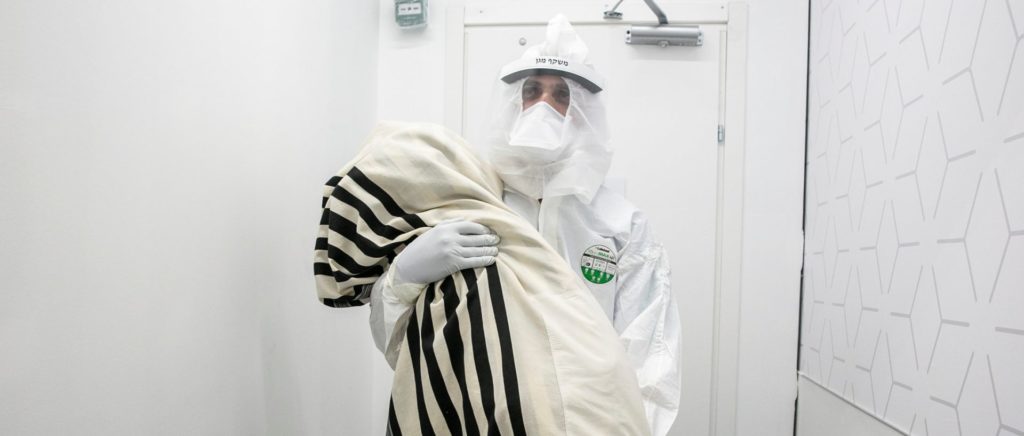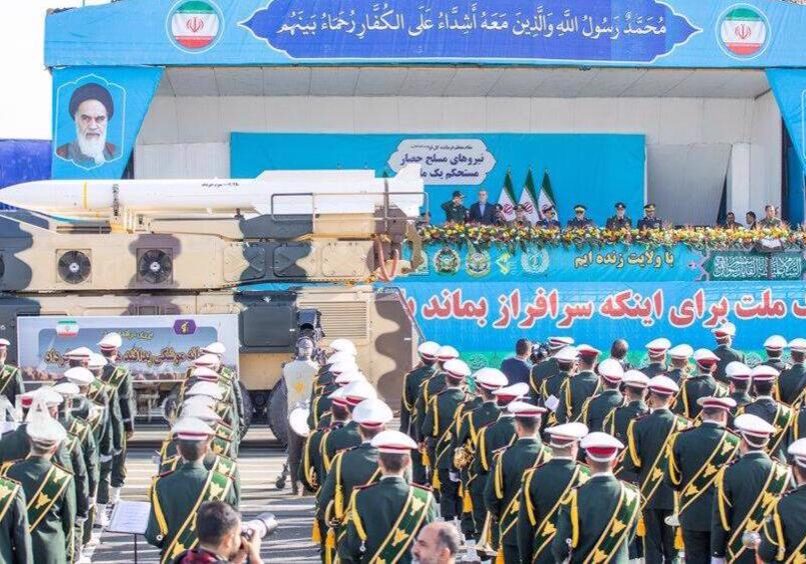Australia/Israel Review
Scribblings: Arab Israelis say “I feel like a real Israeli”
May 1, 2020 | Tzvi Fleischer

This column has frequently highlighted trends and polls indicating that, despite some ongoing problems and discrimination, members of Israel’s Arab minority are increasingly integrating into the Israeli mainstream and finding themselves at home there.
There have been numerous stories, both in Israel and internationally, that suggest the COVID-19 crisis may be helping to encourage this trend – especially given the important and often selfless roles Arab medical workers in Israel are taking in helping victims of the virus.
Arabs make up around 17% of Israel’s doctors, 24% of the nurses, and 48% of the pharmacists. Many important medical departments at Israel’s major hospitals are headed by Arab doctors. In the Israeli medical system, Arab and Jewish patients are treated side by side, under the care of both Arab and Jewish doctors and nurses who generally work together seamlessly.
And there are some amazing stories coming out in the Israeli media of Arab health care workers going above and beyond, acting with compassion, skill and selflessness, and even making extra efforts to help Jewish patients with their religious needs.
To give but one example, Haaretz published a photo of Dr. Abed Zahalka, dressed in full protective gear, carrying a Torah scroll wrapped in a Jewish prayer shawl into the COVID-19 ward at the hospital he works at in Bnei Brak. Bnei Brak is an ultra-Orthodox neighbourhood which has a been a major hotspot for coronavirus cases in Israel. Dr. Zahalka, a Muslim, said facilitating Jewish patients carrying out their daily religious rituals would help them recover, but also said, “I felt like… I was a part of the place, of the people, of the tradition.”
All of this is very positive, especially after a period when Israeli politics has featured some divisive rhetoric about Israel’s Arab minority and their sometimes controversial representatives in the Knesset. But the truth is there is evidence things were going well in terms of Arab feelings of integration even before the pandemic.
Of particular interest is a poll conducted by Tel Aviv University’s Camille Fuchs for the Jewish Public Policy Institute (JPPI) on Israeli Arab identity.
A similar poll from August 2017, which I noted in this column in November of that year, found that, when asked “which term best describes you”, 54% of Israeli Arabs said something that was a variation of “Israeli” – “Israeli Arab,” “Arab citizen of Israel,” “Israeli,” or “Israeli Muslim.” Only 24% chose some variant of “Palestinian” – most commonly simply “Palestinian”.
That 2017 poll in itself showed major change from a poll conducted five years earlier, which showed only 32.5% of Israeli Arabs chose a variation of “Israeli” when asked about their identity.
But the new JPPI survey suggests an even greater transformation since 2017. Today, a full 74% of Israeli Arabs self-identify as either an “Israeli Arab” (51%) or simply an “Israeli” (23%). Only around 7% said their identity was as a “Palestinian.”
The trend toward identifying simply as “Israeli” with no modifier was particularly striking. A similar survey last year found only 5% of Israeli Arabs chose to call themselves simply “Israeli” at that time.
Another survey question provided additional evidence that many Israeli Arabs are identifying with a sense of ‘Israeliness’. Respondents were asked to rate their agreement with the statement “I feel like a real Israeli.” Almost all said they either agree completely (65%) or somewhat agree (33%) with that statement.
The selfless and often heroic efforts of Israeli Arab medical workers can only help accelerate this trend. Yet the evidence from the expressed views of Arabs themselves is that the important work of improving the integration of Israel’s Arab minority is already making excellent progress.
An Iranian Present for Yom HaShoah
Many people seemed to think that, with the departure of the openly antisemitic and Holocaust-denying Iranian President Mahmoud Ahmadinejad in 2013, the Iranian regime had largely stopped its rampant Jew-baiting. Nothing could be further from the truth.
The real power in the regime, Iranian Supreme Leader Ayatollah Ali Khamenei, has himself engaged in Holocaust denial, including in a speech in 2014 and in a video he posted in 2016. He has also promoted antisemitic conspiracy theories, including regarding the coronavirus. In late March, Khamenei’s own office offered this explanation for a claim made by Khamenei that djinns (demons) and humans could be conspiring together against Iran in the coronavirus crisis – there is “no doubt that the Jews and especially the Zionists previously have a long history of supernatural affairs and matters such as a relationship with the devil and genies.”
Meanwhile, this year the Islamic Revolutionary Guard Corps (IRGC), which has come to increasingly dominate the politics and economy of Iran under Khamenei’s patronage, had its own little present for this year’s Holocaust Memorial Day (called Yom HaShoah amongst Jews), which fell on April 21.
The IRGC saw fit to post on its official twitter account the following tweet in Persian (translation courtesy of Google Translate):
“Big Lie: Today Israel commemorates the greatest lie of the century, the Holocaust, in which the Jews created fictitious documents to influence leaders in the world, [about the] killing of six million Jews in World War II and the Nazi invasion of Poland in incinerators and gas chambers.”
Ahmadinejad may be long gone, but the most powerful elements in the Iranian regime seem determined to continue to make it the most antisemitic in the world.
Tags: Iran, Israel, Palestinians






